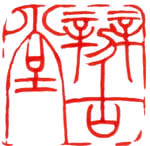Ancient China in Context
The Emergence of China:
From Confucius to the Empire
E Bruce Brooks and A Taeko Brooks
Emergence gives a brief overview of the Chinese classical period (the 05th through the 03rd centuries), its antecedents in earlier times, and its final result: the establishment of the Chinese unified Empire under the Chin Dynasty. Of the many such surveys, only this one correctly dates the major texts, and reveals in detail the interplay between the texts and the respective philosophical schools. Only this one gives attention to the contribution of the indigenous population of China, and to the influence of the adjoining Indian and Greek cultures.
The Emergence of China presents the classical period in its own terms. It contains more than 500 translated excerpts from the classical texts, linked by a running commentary which traces the evolution and interaction of the different schools of thought. These are shown in dialogue about issues from tax policy to the length of the mourning period for a parent. Some texts labor to establish the legal and political structures of the new state, while others passionately oppose its war orientation, or amusingly ridicule those who supported it. Here are the arguments of the Hundred Schools of classical thought, for the first time restored to life and vividly presented.
There are six topical chapters, each treating a major subject in chronological order, framed by a preliminary background chapter and a concluding survey of the eventual Empire. Each chapter includes several brief Methodological Moments, as samples of the philological method on which the work is based. Occasional footnotes point to historical parallels in Greece, Rome, the Ancient Near East, and the mediaeval-to-modern transition in Europe, which at many points the Chinese classical period resembles. At the back of the book are a guide to alternate Chinese romanizations, a list of passages translated, and a subject index.
A preliminary version of The Emergence of China was classroom-tested, and the suggestions of teachers and students were incorporated into the final version. The results of those classroom trials, in both history and philosophy classes, were favorable
This is the only account of early Chinese thought which presents it against the background of the momentous changes taking place in the early Chinese state, and the only account of the early Chinese state which follows its development, by correctly dated documents, from its beginnings in the palace states of Spring and Autumn to the economically sophisticated bureaucracies of late Warring States times. In this larger context, the insights of the philosophers remain, but their failure to influence events is also noted. The fun of the Jwangdz is transmitted, but along with its underlying pain. The achievements of the Chinese Imperial formation process are duly registered, but so is their human cost. Special attention is given to the contribution of non-Chinese peoples to the eventual Chinese civilization.
Those wishing to follow a major philosophy in more detail through the Warring States centuries may consult other works in this series, among them the Dauists, in Quiet Ways; the military experts, in Arts of War; the sub-elite Micians, in Waging Peace, and the late Confucians, in Mencius. The Ancient China in Context series, of which this is the introductory and anchor volume, may thus be used in single courses, or as the foundation of a program of acquaintance in ancient China, with or without concurrent study of the classical Chinese language.
See Comments from Readers and Classroom Teachers
See the Table of Contents, including some downloadable passages.
Subject Categories: Chinese History, Chinese Philosophy
E BRUCE BROOKS is Research Professor of Chinese, and A TAEKO BROOKS is Research Associate, at the University of Massachusetts at Amherst.
The Emergence of China: From Confucius to the Empire
256 pages, 10 illus, 4 maps, 6 1/8 x 9 1/4"
LCCN: 2015930277
$47.95 HB, ISBN 978-1-936166-35-0
$24.95 PB, ISBN 978-1-936166-75-6
$23.95 E-book, ISBN 978-1-936166-95-4
Appeared: May 2015
18 June 2015 / Contact The Project / Exit to Publications Page
